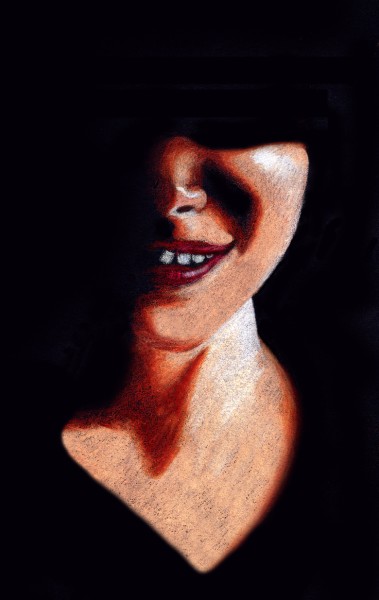Mona Lisa didn’t get special treatment on account of being a woman. She got frog walked in like any perp, the Johnstown way: hands braceleted behind her back, with Walters leading the way. Alex Kowalski, aka the Polish Prince, came slouching into the station right on their heels.
I’m a camera guy. I notice faces, so I noticed Mona’s straightaway, which looked all angles, some flattering. A potato nub of a nose stuck in the middle of a face and a crooked grin hung from the mouth. That grin stopped me cold.
For once, we were up to our neck in business on a Tuesday. One of the hopheads Walters rousted from Ogilvy’s flophouse in a raid had been yelling about a corned beef sandwich for hours, and I’d almost gone cross-eyed with a migraine from the racket. In the holding cells, those hopheads were pressed tight next to vagrants reeking of yesterday’s garbage who had been poached out of Cascade Park.
Crazy time.
An ice storm had blown into Johnstown like God’s cold fury, bursting pipes and clogging roads, and it’s a known fact that people around here get a little nutty when snow piles up to the roof.
“Hey, Glass Eye,” Walters called over to me as I fiddled with the Kodak slide film. At the name, I gritted my teeth hard enough to chip an incisor. Walters never let me forget the war wound. Like I said I’m a camera guy when Im not riding a bucket and a mop, not even a cop.
I put up with the ribbing. Walters gave everyone a name, and 1936 was a bad year for jobs, so I let it ride.
“Maybe got a real criminal here. Mona, meet Glass Eye. Say hi.” Walters loosened the cuffs, and Mona rubbed her wrists. Walters began checking her in, pressing one of her thick fingers in the ink well for fingerprints. While finishing the paperwork, Walters broke down the story of Mona Lisa.
A few things stood out. First, nobody knew exactly what she had done. Second, Walters had given Mona Lisa the name Mona Lisa, and as far as he knew it was the only name she had.
“It started with a cat in a tree,” Walters admitted. Cat in a tree is Walter speak for calls he considers beneath his dignity. Walters told me how a dog over at Fritz Liebers place in Ellsworth City had been howling for three days. After twelve phone calls from Liebers neighbors, the Andersons, Walters shows up and finds Mona Lisa in the middle of the kitchen, naked as a jaybird, blood everywhere. Chicken was boiling on the stove, diced pearl onions were stacked on the counter, and the Lieber dog, a big, slobbering German Shepherd, was licking some gore off Mona’s leg when Walters waltzed in. Mona sweetly smiled at Walters as though he were a surprise dinner guest. Nobody in the neighborhood had ever seen Mona before.
Walters kept his pen moving, checking boxes on the intake record.
“No Fritz, no weapon. All we got is blood, a traumatized dog, and Mona here,” the Prince said from behind his acre-wide mahogany desk.
“She mute?” I asked.
“Or shy, Glass Eye,” Walters said, looking at me in a pitying way as if I was the stupidest guy on earth, which I may in fact be. “What do I know? Well get Doc Hansen in.”
I set smiling Mona against the backdrop of a blank wall. I took one picture, then a second. Walters kept the questions going rapid fire.
Why’d you go and do a thing like that, Mona?
What’d you do with Fritzy, Mona?
What’s with the smile, Mona?
Monas mouth slacked at the corners, the grin faded.
“Guess,” she said.



 The core workshop of SmokeLong Fitness is all in writing, so you can take part from anywhere at anytime. We are excited about creating a supportive, consistent and structured environment for flash writers to work on their craft in a community. We are thrilled and proud to say that our workshop participants have won, placed, or been listed in every major flash competition. Community works.
The core workshop of SmokeLong Fitness is all in writing, so you can take part from anywhere at anytime. We are excited about creating a supportive, consistent and structured environment for flash writers to work on their craft in a community. We are thrilled and proud to say that our workshop participants have won, placed, or been listed in every major flash competition. Community works.